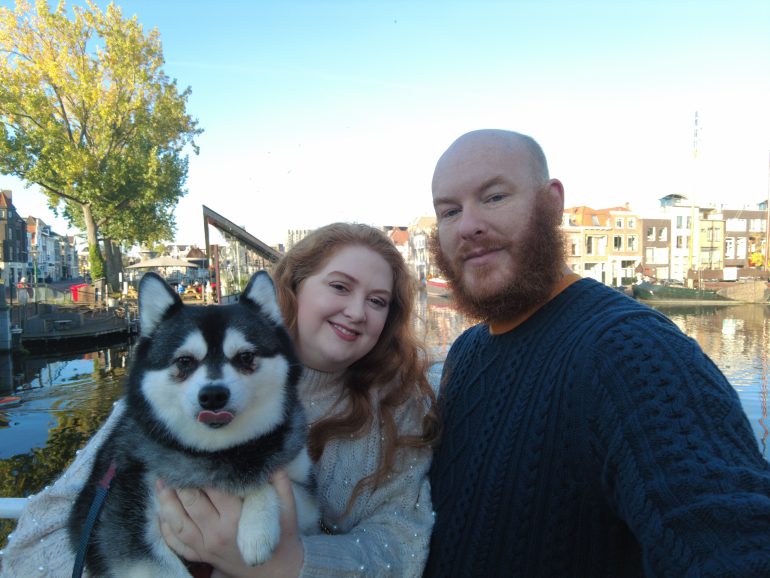Nestled in the heart of the Netherlands, the picturesque city of Leiden is renowned for its rich history, picturesque canals and vibrant cultural scene. While Leiden offers a plethora of attractions year-round, it is during the Drie Oktober (Three October) festival that this charming Dutch city truly comes alive. This annual celebration commemorates the events of Leiden’s liberation from the Spanish siege in 1574 and is a testament to the city’s resilience and unity and the enduring spirit of its residents.
The historical significance of Drie Oktober
The origins of the Drie Oktober festival (also known as Leidens Ontzet) trace back to one of the most challenging periods in Dutch history – the Eighty Years’ War, in which the Netherlands liberated themselves from Spanish rule. In 1573-4, the Spanish Army tried to capture Leiden twice. Unfortunately, the city wasn’t ready for the second attack; the inhabitants didn’t have enough food, supplies or resources, and they hadn’t yet torn down the Spanish defenses outside the city after the first attack. So, in just two months, they ran out of food, and many people were starving. The situation was so bad that the mayor, Pieter Adriaanszoon van der Werff, even offered to let people eat him if it meant they could keep fighting the Spanish. Nowadays there is a park named after him, with a statue of him.
Leiden was saved when William the Silent and his ‘Sea Beggars’ came up with a plan to free the city. They broke some dikes near Rotterdam, which flooded the surrounding area. A lucky storm on 2 October helped, and the Spanish had to leave quickly. They left behind a pot of hutspot, a stew made of onions, carrots and beef, which a local boy found and brought back to the city. The pot is now on show in Museum de Lakenhal.
On 3 October, William the Silent arrived in Leiden, bringing food for the hungry people – white bread and herring (haring en wittebrood). He also gave the city Leiden University the next year.
Modern-day celebrations
Today, Drie Oktober has evolved into a multi-day festival that attracts people from all over the Netherlands and beyond. The celebration usually kicks off on 2 October and culminates on the 3rd. Here’s a glimpse into the festivities:
Parades: The festival begins with colourful parades featuring historical reenactments, marching bands and traditional Dutch costumes. The parades wind their way through Leiden’s historic streets, providing a captivating spectacle for locals and visitors alike.
Hutspot: No Drie Oktober celebration would be complete without a taste of hutspot, a traditional Dutch dish made from potatoes, carrots and onions. According to legend, this simple yet hearty meal was discovered in the abandoned Spanish camp, and came to symbolize the victory and unity of the people.
Carnival atmosphere: The city transforms into a carnival-like atmosphere with fairground rides, street performers and numerous food stalls offering Dutch delicacies and international treats. It’s a time for families to come together and enjoy the festive spirit.
Museum de Lakenhal: To celebrate the occasion, the museum allows free entry during the celebration. During this time, you can explore the museum’s impressive collection of art and exhibits that tell the story of Leiden’s history. Upstairs is a detailed exhibition about Leidens Ontzet, with paintings showing how tough things were for the people during the Spanish siege. You can also see the cooking pot found in the Spanish camp.
Unity and pride
Drie Oktober is more than just a historical celebration; it’s a reflection of the deep sense of pride and unity that defines the people of Leiden. The festival brings the entire community together, fostering a strong sense of belonging and identity. For expats living in the Netherlands, it’s an excellent opportunity to immerse themselves in Dutch culture and history.
Leiden’s Drie Oktober is not just a festival; it’s a living testament to the city’s resilience and the enduring spirit of its people. It reminds us that even in the face of adversity, unity and determination can lead to victory. For expats it’s a chance to witness Dutch history and culture in all its vibrant glory, making it an experience not to be missed during your time in the Netherlands. So, mark your calendar for 3 October and join the celebration of Leiden’s remarkable past and its bright future.
Written by Tracey Martin
